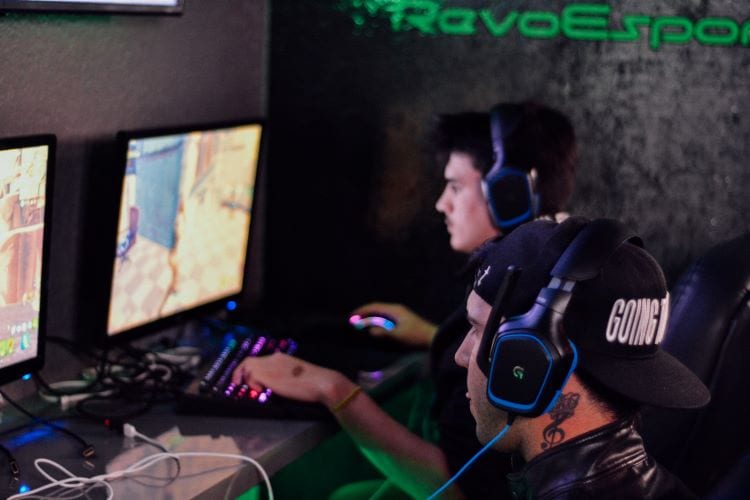Esports Gambling: A Beginner’s Guide

Esports gambling has become big business. In 2016, an estimated $8 billion was bet on esports, but most wagers aren’t as simple as standard sports betting. Esports gambling is complex, and gamers new to the process need to educate themselves on the possibilities – and risks – of esports gambling.
What Is Esports Gambling?
Broadly speaking, esports gambling is simply betting on video games. While the industry’s rise coincides with the emergence of professional esports, informally it’s been around since video games were invented. If you’ve ever bet a friend $20 that you could beat him in your favorite game, you’ve gambled on esports.
For the most part, however, it’s not that simple. Esports betting comes in many different forms, and this social style is one of the smallest pieces of the pie. There’s cash betting, which closely resembles traditional sports gambling, and skin betting, something unique to esports that dominates the market.
Cash Betting Versus Skin Betting
If you know anything about standard sports gambling, you already know how cash betting works. A sportsbook sets odds on any match between two professional teams, and you pick who you think will win. If you pick the winning team you earn some cash, and if not you lose the wager – and your cash. The process is very straightforward, even if picking winners isn’t all that easy.
Skin gambling is a bit more complex and makes up about 90 percent of all esports wagers. Skin refers to in-game skins, items that give players no competitive advantage but allow them to customize their character or weapons. For example, in Fortnite you can spend money to make your character look like John Wick, but the only benefit is that it looks cool.
Skins often serve as status symbols for players. Gamers without any skins are considered to be unskilled, while those with high-end skins are generally thought to be the best of the best. This doesn’t always hold true, but the perception is part of what drives skin gambling.
Skins also have cash value though, which makes skin gambling a multi-billion dollar field as millions of gamers swap and wager skins daily.
Breaking Down the Skins Economy
The process of making money through skin gambling can be a bit confusing since it’s never as simple as just placing a bet. A majority of skin gamblers are PC gamers and Steam is a major medium for setting up skin bets, so unless otherwise stated every part of this process takes place on a computer, not a console.
After a player earns or buys an in-game skin, they can add it to their Steam library and transfer it to a skin gambling site from there. Gambling sites either allow you to wager skins individually or award you the value of the skins in the form of a custom currency. From there you’re free to begin betting.
A chunk of skin wagers are similar to cash wagers with skins or coins in the place of cash, but there are a number of other ways to gamble skins. Players can also bet on roulette games, coin flips, lotteries, raffles and more. All these forms of skin gambling are simple and quick, meaning a player could hypothetically win hundreds of dollars worth of skins relatively quickly.
If a player wins, they can keep gambling with the new skins/coins they earned, keep their skins to flaunt in-game, or sell on a secondary market for a cash payout.
CS:GO Gambling
To put all this in context, let’s look at the center of the skin economy: Counter-Strike: Global Offensive. CS:GO is one of the most popular esports but it is #1 when it comes to skin gambling. The simplicity of transferring skins and the sheer number of them make CS:GO perfect for skin gamblers.
While some CS:GO betting sites have shut down in the past year, others like Gamdom are alive and well. The site offers four casino-style games that allow players to earn coins they can cash out for skins. They are:
- Crash, a game where your initial wager gains a 0.1x multiplier every second, but the bet is liable to “crash” randomly and leave you with nothing at any point if you don’t cash out.
- Roulette, which is essentially identical to its real-world equivalent.
- TradeUp, which lets you wager a number of coins below the value of an item with a chance to win it for cheap.
- HiLo, where the site randomly displays a new card every 10 seconds and players bet if the next will be higher or lower than the last.
1,500 Gamdom coins are equivalent to $1, so players can earn real money on the site through these games of chance. The biggest single game payout in the site’s history was a 51 million coin prize, worth about $34,000. Gamdom is one of many prominent CS:GO gambling sites, but it’s a good example of how the industry as a whole operates.
Fantasy Esports Gambling
Beyond skin and cash gambling, fantasy esports have emerged as well. For the most part, fantasy esports are daily games organized through sites like DraftKings and operate similarly to daily fantasy sports.
Relatively speaking, fantasy is one of the simplest aspects of esports gambling. Contests are available for most major tournaments, although League of Legends is the primary game for fantasy. Much like if you were constructing a daily fantasy football team, you pick players at each position of a game and rack up points as they accumulate stats.
The Final Word
The esports gambling industry has hit some bumps along the road, but overall it’s growing at a steady rate, like esports in general. Some of the finer points are more complicated than standard gambling, but most of the ideas remain the same.
Trying your hand at esports betting can be a fun way to earn some extra cash, but always remember its all just a gamble in the end.
Are you confident in your gaming skills? Check out our Make Money Playing Games Without Pro-Level Skills to put them to the test!









